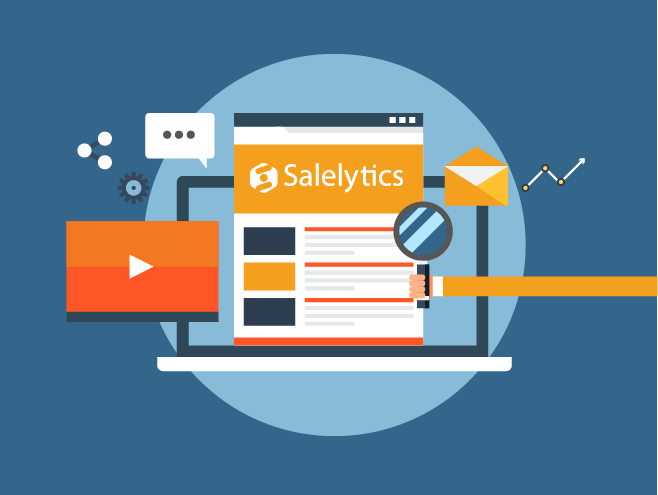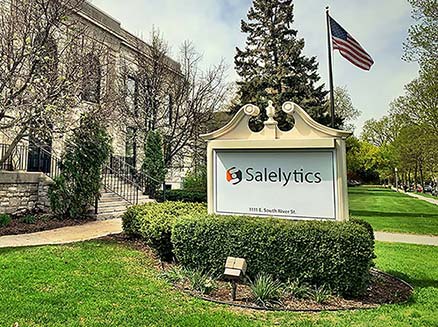In today's fast-paced and competitive business landscape, managing customer relationships is of the utmost importance. Customer Relationship Management (CRM) systems have emerged as a game-changing tool, revolutionizing the way businesses interact with customers, streamline operations, and drive growth.
What is a CRM?
A Customer Relationship Management (CRM) system is a technology-driven solution designed to help businesses organize, track, and manage their interactions with existing and potential customers. By centralizing customer data, interactions, and communication history, CRMs offer a holistic view of each customer, enabling businesses to enhance customer satisfaction, streamline processes, and drive revenue growth. It’s basically like having a super-powered assistant that keeps track of all relevant information starting from the first time you contact someone.
Why is a CRM important?
The heart of a CRM lies in building and nurturing relationships with your customers. It collects valuable data about their preferences, buying behavior, and interactions, allowing you to understand them better. Armed with this knowledge, you can deliver personalized experiences that leave a lasting impression, turning one-time customers into loyal brand advocates.
Types of CRMs
Now, there are several types of CRMs tailored to specific business needs. We’ve talked about the benefits of a customized CRM in a previous blog article that you can read here, but here are the three types of CRMs you’ll see on the market:
- Operational CRM: This type is all about efficiency and productivity. It helps you streamline your day-to-day operations by automating repetitive tasks. From managing leads, tracking sales opportunities, to handling customer support, operational CRMs have your back. Popular examples include Salesforce, HubSpot, and Zoho CRM.
- Analytical CRM: Analytical CRMs are all about the numbers. This type focuses on extracting insights from customer data. It helps you identify patterns, trends, and customer preferences, empowering you to make data-driven decisions. Keep an eye out for platforms like HubSpot and Microsoft Dynamics 365 for their robust analytical capabilities.
- Collaborative CRM: A collaborative CRM is all about fostering teamwork within your organization. It enables different departments like sales, marketing, and customer support to share customer information seamlessly. With tools like Zendesk and Pipedrive, everyone stays in sync, providing a unified customer experience.
The Benefits of Using a CRM
Now, you might be wondering, "What's in it for my business?" There are a variety of benefits to using a CRM:
- Enhanced Customer Relationships: A CRM lets you gain insights into your customers. By understanding their needs and preferences, you can tailor your offerings, making them feel special and valued. Happy customers are the foundation of a successful business, and personalized interactions are the foundations of a happy customer.
- Boosted Productivity: With a CRM automating routine processes, your team can focus on what truly matters – building relationships and driving growth. Time saved is money earned!
- Sales Efficiency: A CRM equips your sales team with a treasure trove of customer insights. They can track leads, monitor sales opportunities, and close deals faster with personalized pitches. It's a surefire recipe for increased revenue.
- Targeted Marketing: A CRM segments your customer base, allowing you to create laser-focused marketing campaigns. Targeted campaigns based on customer data result in higher engagement and conversion rates, giving you a better ROI on your marketing efforts.
- Data-Driven Strategy: A CRM's analytical capabilities provide you with data-backed insights. This lets you make smarter choices that align with your customer's desires and keep you ahead of the competition.
- Customer Retention: Loyal customers are golden. A CRM helps you stay connected, provide top-notch support, and exceed their expectations. The result? Happy customers who keep coming back for more, becoming your brand's ambassadors.
In Conclusion
Customer Relationship Management systems have evolved into indispensable tools for businesses across all industries. By leveraging the power of CRMs, you can nurture customer relationships, optimize operational processes, and drive sustained growth. Whether you're a small startup or a large enterprise, integrating a CRM into your business strategy is a move that promises to take your business to the next level.

![Solutions]() Overview Full Account Management Funnel Development Sole Territory Coverage Team Sell Customer Care Patient Centric International Support
Overview Full Account Management Funnel Development Sole Territory Coverage Team Sell Customer Care Patient Centric International Support![Industries]()
![Technology]() Overview Omnichannel Experience Sales Enablement Strategy Optimization Data Science and Language Technology
Overview Omnichannel Experience Sales Enablement Strategy Optimization Data Science and Language Technology![Careers]()
![About]()
![About]() Careers Current Open Positions Work From Home Professional Development Salelytics Recruiting Team About Salelytics Our Locations Contact Us Blog
Careers Current Open Positions Work From Home Professional Development Salelytics Recruiting Team About Salelytics Our Locations Contact Us Blog





.jpg)

.jpg)
 (1).png)
 (1).jpg)